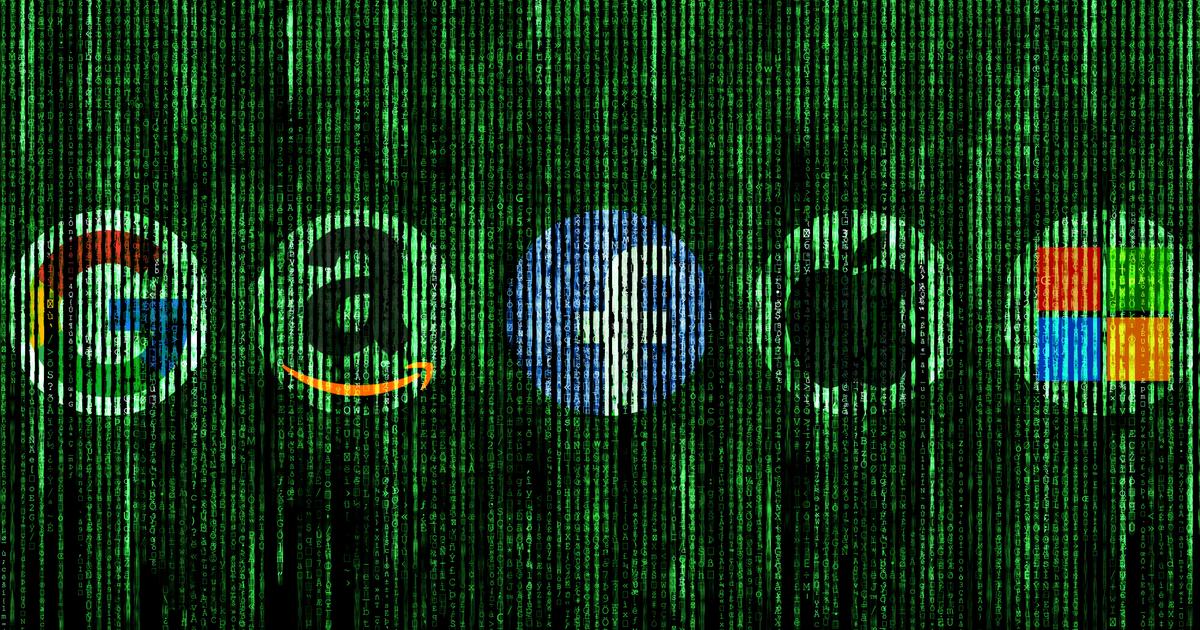Olivier Bomsel is Professor of Economics and Director of the Media and Brand Economics Chair at Mines ParisTech. He co-
wrote Le Nouveau Western with Rémi Devaux - Who can restrain the web giants?
, Ed. Le Cherche-Midi, March 2022.
THE
FIGARO.
- In recent weeks, layoff plans have multiplied among Gafam.
Amazon, Microsoft and others are making adjustments to optimize their margins.
What are these layoffs hiding?
Olivier BOSEL.
-
During the Covid crisis, Amazon made significant profits from the boom in online commerce.
But since we returned to normal, the American giant suffered a decline in sales and profitability.
So he started making budget cuts to compensate, which explains the massive layoff plans.
When firms experience a slowdown after a significant growth phase, this translates into a maintenance of fixed costs and a drop in turnover.
And the performance being less good, the markets react, which leads to a fall in the price, especially when these are highly valued companies with a strong anticipation of growth.
Amazon's business is based on the one hand on a distribution activity, the company buys wholesale and resells at retail,
market place
, that is to say that third-party sellers come to position themselves on the online store, by paying Amazon a commission.
The first activity, distribution, has high fixed costs because stocks have to be financed, and the second has fairly low costs but only brings in commissions.
So when activity decreases, like today, the fixed costs of distribution increase.
It is an activity whose profitability is very sensitive to turnover.
As for Meta (ex-Facebook), its profitability is based on the number and dynamism of users.
However, this number is starting to level off, the dynamism slowing down as the user population ages, the younger generations are moving towards competing social networks, including TikTok.
Advertising revenue also declines due to inflation.
On the one hand, because of the rise in prices, the big companies publish less advertising content.
And on the other hand, they favor
offline
ads , which build image and willingness to pay a little more, rather than
online ads.
, which refer to external sites, because when users click on the link and see that prices have increased, the number of purchases is lower.
Inflation therefore has a very negative effect on online advertising revenues.
The CEOs of these firms are not idealists but formidable businessmen, who have taken advantage of their growth to dangle investors with exceptional expectations.
Olivier Bomsell
Are they also paying for their all-out diversification strategy with sometimes eccentric or ultra-futuristic projects?
If we take the example of the metaverse, Facebook's investments, which are long-term investments, were poorly perceived by the market.
Facebook's idea was to rejuvenate its clientele by adding virtual reality services, but the stock market has never been very fond of these ultra-technological sectors.
Moreover, between Google, Amazon, and Meta, the latter clearly had the most fragile economic model.
In a way, can we say that the Gafam have stopped dreaming?
The Gafams have never been dreamers, but sellers of dreams.
The CEOs of these firms are not idealists but formidable businessmen, who have taken advantage of their growth to dangle investors with exceptional expectations.
But when they are no longer able to sell growth to the markets, and their sector stabilizes, they necessarily fall on the stock market.
Could the weakening of Facebook lead to a change in the digital landscape as we know it?
The Internet has historically had three major functions, which have gone hand in hand with three major monopolies.
The first function is topography, which is largely owned by Google;
the second is e-commerce, in which Amazon triumphs;
and the third and socialization, that is to say giving an individual identity to the Internet user, who was then only a number, in which Facebook was a pioneer.
If we now look to the future, the first function, topography, will continue because it is an essential tool that still has many possibilities of evolution, Google's monopoly is therefore out of danger.
Regarding e-commerce, it is a sector of the future in which Amazon remains unbeatable,
in particular thanks to the success of the “Prime” program which has won the loyalty of a large customer base.
But for socialization, after a decade of reign, Facebook is struggling to keep its monopoly.
When Instagram arrived, Facebook bought it and integrated it, but today it has to face TikTok.
This Chinese social network captures a new generation of users that Meta is struggling to seduce.
Regarding Amazon, we are very far from the end of its hegemony.
But for Meta, which has a fairly unstable business model, we may be entering a phase of gradual decline.
Olivier Bomsell
There are also social networks with very specific functions such as LinkedIn, which Facebook was unable to anticipate.
Thus, Meta remains with the Facebook platform, Instagram, WhatsApp discussions, but these three services are really in very strong competition.
From this point of view, Meta's monopoly is much weaker than the other two.
Thus, it is in the third function, the socialization sector, that the Internet will experience changes in the years to come.
Will the tightening of restrictions relating to the respect of user data weaken the Gafam?
Facebook's business model is largely based on user data.
This data makes it possible to profile the social habits of the Internet user, and to offer targeted advertising content.
However, States and manufacturers such as Apple are in the process of implementing much more restrictive practices on the circulation of individual data.
Therefore, profiling in this way of advertising is going to be much less profitable than it has been in the past.
Meta, but also Google, will have to find new strategies.
In the long term, is the hegemony of Gafam called into question?
Regarding Amazon, we are very far from the end of its hegemony.
But for Meta, which has a fairly unstable business model, we may be entering a phase of gradual decline.
If we look at Google, even if this firm were to be dismantled, its market power is such that it would remain extremely powerful in the field of online search and mobile phone operating systems.
SEE ALSO
- Why the Gafam are in the midst of a crisis



/cloudfront-eu-central-1.images.arcpublishing.com/prisa/6BTHUDPEMVESRITAHZQQF4WVF4.jpg)

